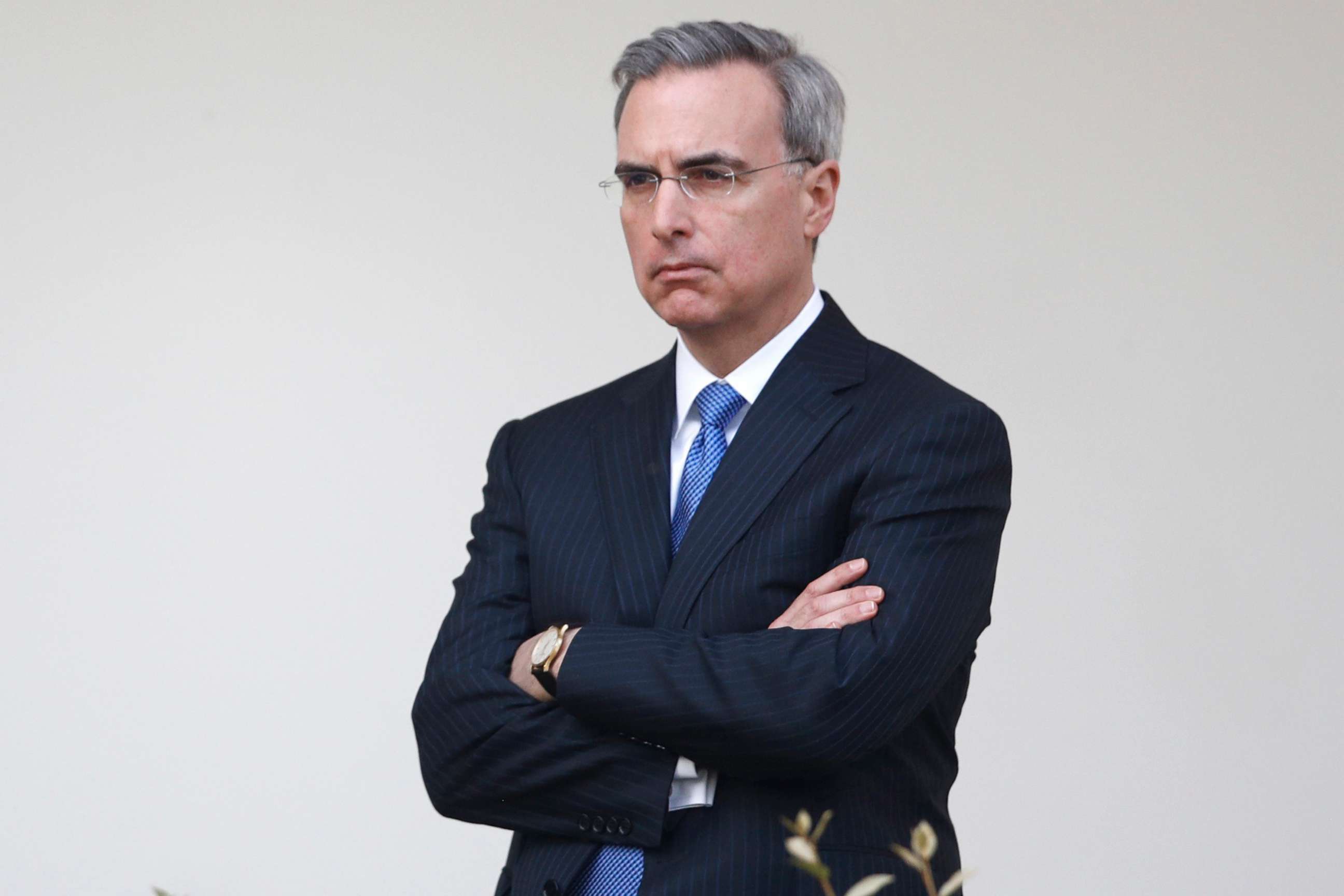Former Trump White House counsel Pat Cipollone subpoenaed by Jan. 6 committee
Cipollone "raised legal and other concerns about President Trump’s activities."
Donald Trump's former White House counsel Pat Cipollone was subpoenaed Wednesday for a deposition by the House's Jan. 6 committee -- and his team is now engaging on the ultimate scope of the order for future testimony, sources say.
"The Select Committee's investigation has revealed evidence that Mr. Cipollone repeatedly raised legal and other concerns about President Trump's activities on January 6th and in the days that preceded," the Jan. 6 committee's chair and vice-chair, Mississippi Democrat Bennie Thompson and Wyoming Republican Liz Cheney, said in a statement.
Cipollone is evaluating the subpoena and his team is involved with the committee on the parameters surrounding an eventual closed-door deposition, sources close to him told ABC News.
There is an expectation that he and the committee will reach an agreement on the terms by the requested deposition date of July 6, though sources emphasize the fluid nature of the talks.
Sources said that among the topics for testimony about which Cipollone and the committee are negotiating: the actions taken by former top Department of Justice official Jeffrey Clark to use the powers of the DOJ to attempt to overturn the 2020 presidential election; what Cipollone did the day of Jan. 6, 2021, excluding conversations he had directly with former President Trump; interactions he was present for or had with former Trump lawyer John Eastman; and interactions he was present for or had with members of Congress post-2020 election.
The information shared with the committee could be impacted by a number of factors, sources familiar with the deliberations said. That includes whether Trump's presence in any of the past meetings could result in potential claims of executive privilege.
Cipollone and former deputy White House counsel Pat Philbin met with committee investigators for an informal interview in April. Cipollone and Philbin engaged on these topics during that previous meeting with committee investigators.
The new subpoena comes one day after Cipollone was repeatedly mentioned during the testimony of Cassidy Hutchinson, who was a top aide to Trump's chief of staff Mark Meadows before and during the Jan. 6, 2021, attack on the Capitol.
Hutchinson told the committee during a Tuesday hearing that on the morning of Jan. 6, Cipollone was adamant that Trump shouldn't accompany his supporters to the Capitol after addressing them at the Ellipse near the White House earlier that day.
"We're going to get charged with every crime imaginable if we make that movement happen," she recalled Cipollone telling her at the time.
A lawyer familiar with Cipollone's deliberations told ABC News earlier Wednesday, in response to the committee's announcement: "Of course a subpoena was necessary before the former White House counsel could even consider transcribed testimony before the committee."

"Now that a subpoena has been issued, it'll be evaluated as to matters of privilege that might be appropriate," the lawyer said.
The committee wrote in a letter to Cipollone along with his subpoena that they "continued to obtain evidence about which you are uniquely positioned to testify; however, you have declined to cooperate with us further."
Cipollone was one of the few aides who was with then-President Trump in the West Wing on Jan. 6. ABC News has reported that in the days following the attack on the Capitol, Cipollone advised Trump that Trump could potentially face civil liability in connection with his role encouraging supporters to march on the Capitol.
Both Cipollone and Philbin, his deputy, were part of a Jan. 3, 2021, Oval Office meeting where Trump insisted on replacing then-acting Attorney General Jeffrey Rosen with Clark, a Trump loyalist who had vowed to use the DOJ to investigate the election.
Cipollone and Philbin made it clear to Trump that they would resign if Clark were installed, according to a Senate committee report released last year that detailed instances where Trump and his allies sought to use the DOJ to overturn the election.




